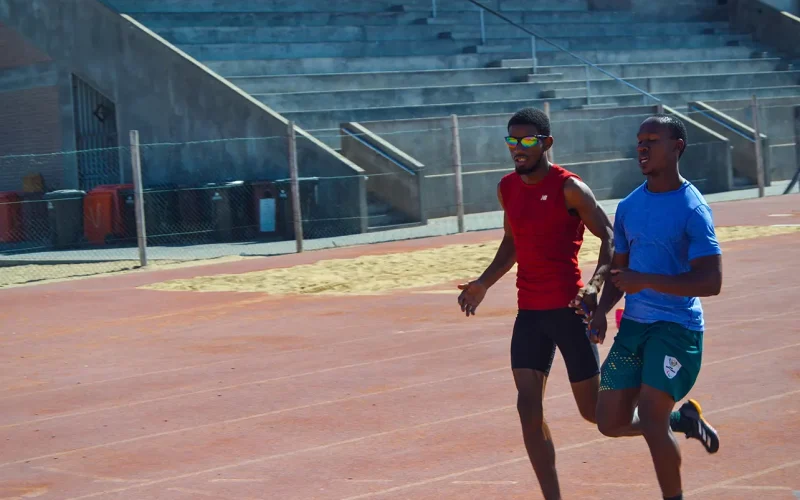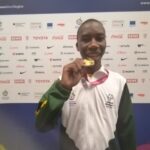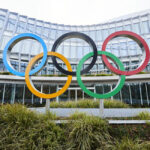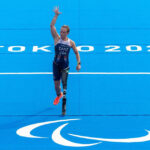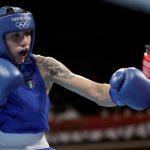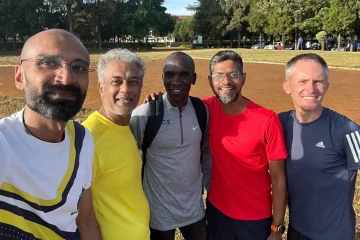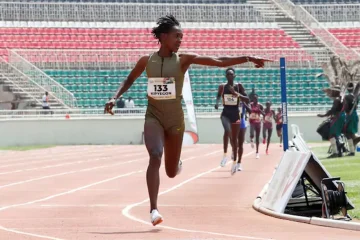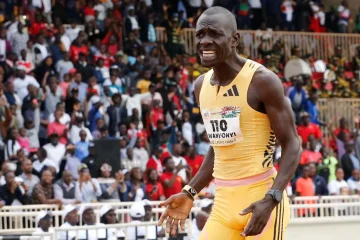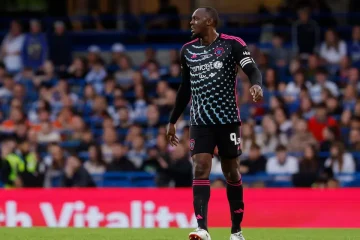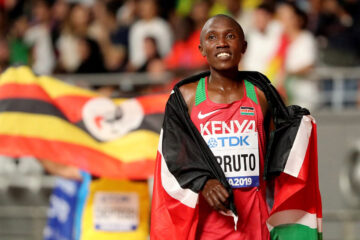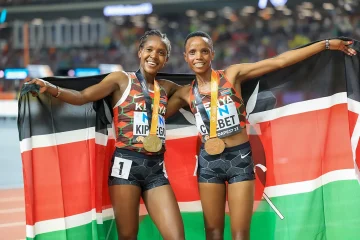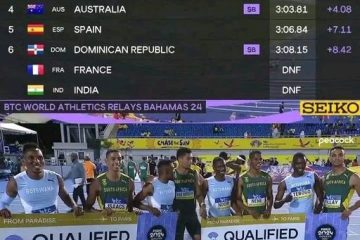GREETED by cheers and hugs, Namibian para-athlete, Chris Kinda together with guide Kelvin Goagoseb was given a heroic welcome at the MTC Dome Indoor Sports Centre in Swakopmund after becoming the first para-athlete from Namibia to win a gold medal when at a Paralympic World Championships. Kinda dashed to victory in the 400m T11 event at the International Paralympic Committee (IPC) World Championship held in Kobe, Japan from 17 to 25 May.
“I told myself when I was still in Japan that I will dedicate this gold medal to my late mother during that moment I had so many mixed feelings because if she was still around how happy she would have been to see my work,” he said.
Hailing from a country with a population of just three million Kinda now aspires to achieve a historic feat: becoming the first track and field athlete to win both a Paralympic World Championship gold medal and an Olympic gold medal.
Kinda was born with a rare eye impairment called Glaucoma. He lost his mother at just 8 years old and currently lives with his aunt and cousins in the DRC informal settlement in Swakopmund, a coastal town situated about 380 kilometres from the capital, Windhoek.
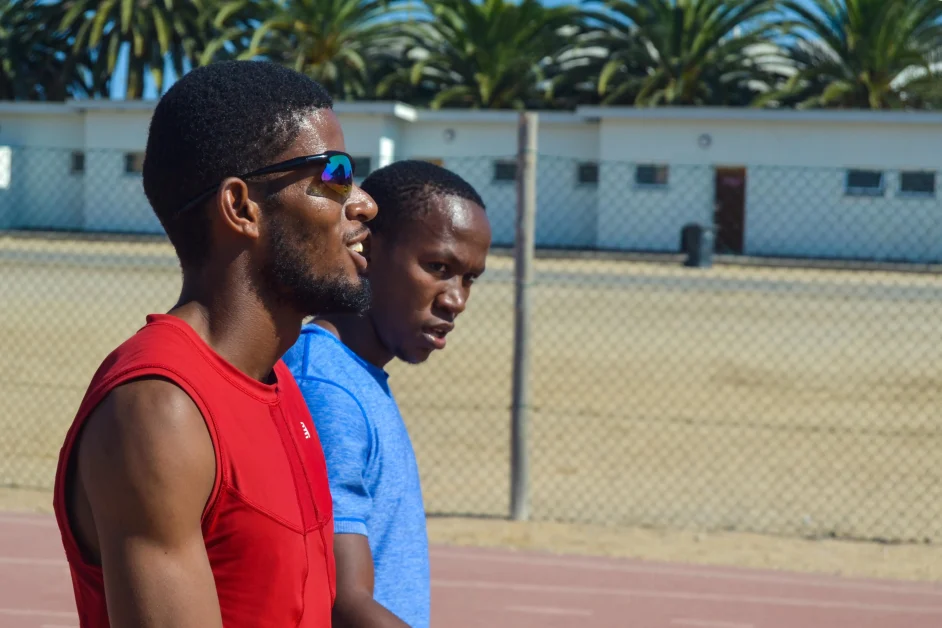
“Growing up I could see some light vision, but in 2019 I lost all that light vision I could see,” explained the young athlete.
Soft-spoken yet charismatic, Kinda, a resident of Swakopmund’s DRC Informal Settlement narrated how he started his sports journey.
“I started doing athletics when I was in high school when I was 15 years old, but I was not really that interested because I didn’t know that someone who cannot see could do it. I would just run inter-house school athletics and that was the end.”
In 2017, Cuban coach Barbara Fernandes came to Kinda’s school and scouted him because of the potential she saw. The coach challenged him to start training.
“I was reluctant, but she said I should just give it a try.”
In October 2017, he participated in his first national championship. Despite very slow finishing times, his then-coach encouraged him not to give up.
Between 2018 and 2019, Kinda represented Namibia in regional competitions in Southern Africa, winning two bronze medals and a gold medal. However, late in 2019, everything changed for him.
“In 2019, I did not go to any international competition because I lost my complete eyesight. I really wanted to leave athletics, but coach Barbara Fernandes didn’t want me to leave athletics.”
Kinda is currently trained by coach T’Niel Young, who met him eight months ago during a training camp in Windhoek. He has coaching sessions three times per day at the MTC Dome Indoor Sports Centre as well as the Vineta Sports Field.
According to Young, the next goal that she is working on is for Kinda to claim gold at the 2024 Paralympic Games, scheduled to take place in Paris, France in August.
“Sport is a very unpredictable thing, and we cannot determine the future but as it stands now for me personally, it is Chris’ title to lose,” said Young.
Young describes Kinda as a hardworking athlete who is disciplined and focused.
Alongside other athletes enrolled at the MTC Dome, Kinda participates in ten to fourteen training sessions per week. These sessions cover a range of activities, including track sessions, strength training, biomechanics, and pool workouts.
“I guide them on what they need to eat and how to eat it and when they need to eat what, and that kind of stuff. At the MTC Dome, we also provide meals as well as supplementation just so that we can ensure that their immunity is where it needs to be, and their immune systems are really boosted and looked after and their muscles can sustain the stress that we are putting them under,” the coach explained.
Namibia has good athletics infrastructure, particularly in Swakopmund, where Kinda trains. The MTC Dome is a world-class facility that provides physical and mental fitness, and nutrition services. Additionally, Swakopmund boasts the Vineta Sports Field, which features a running track and frequently hosts national athletics championships.
In Windhoek, the Independence Stadium has consistently upheld its quality for sporting events, particularly athletics, over the decades. There are also ongoing plans to construct more sports stadiums across the country to accommodate emerging talent.
Namibia’s first Paralympic gold medal was won by Johanna Benson in the 200m T37 race at the 2012 Paralympic Games. She followed that up with a silver medal in the 100m T37 event during the same games. She achieved bronze medals at the IPC World Championships between 2013 and 2015 in the 100m and 200m T37 events.
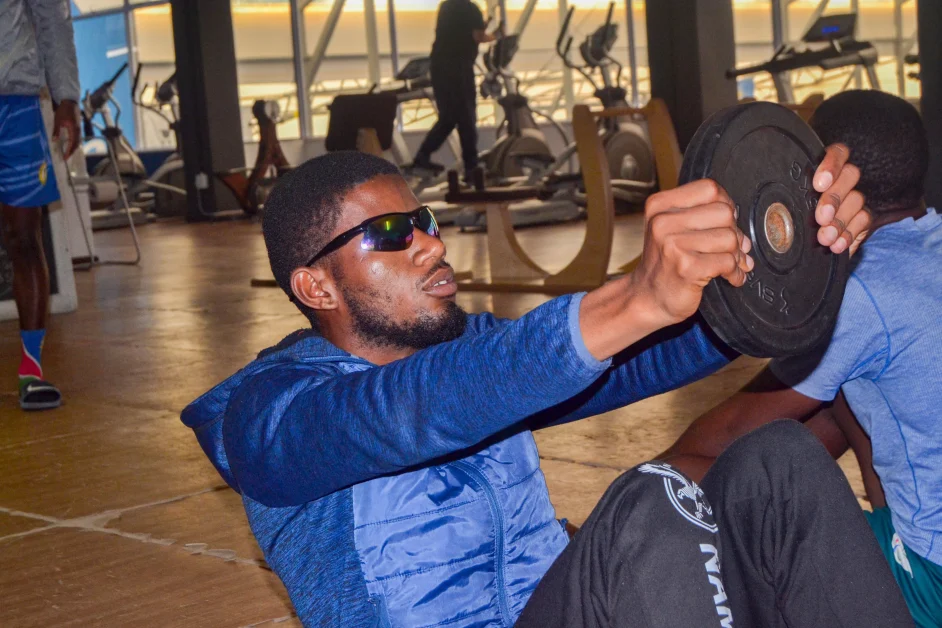
More recently, Ananias Shikongo became the first Namibian male athlete to win a gold medal at the Rio de Janeiro 2016 Paralympic Games in the 200m T11 event as well as a silver medal in 400m T11 and the bronze medals in the 100m. Shikongo collected four silver medals and two bronze medals at IPC World Championships between 2011 and 2023.
Kinda looks up to decorated Paralympian athlete Ananias Shikongo as a role model.
“I also want to be like him one day to win a medal at a Paralympic Games. In everything that I do, I want to be known, I want to be known as the first person to be able to do that. So at least slowly but surely it is becoming true,” he said.
Kinda met his guide Kelvin Goagaseb in 2019 before the IPC World Championships, when he was getting too fast for his then guide.
“It felt like a dream at first. I asked my guide when we reached the finish line, how we ran and he said that he didn’t know and when I asked my fellow teammates, they told me that we won.”
Goagoseb noted that mutual understanding could prove to be the decisive factor that enables a pair to win a gold medal at the upcoming Paralympic Games.
“What makes us work together is that we have the same coach under the same club and just me guiding him. The time that we met we spent some time together and we learned a lot about each other. Working together is always an important factor. You must understand each other and each other’s bodies and that is how things work out easily and then there are always good results,” he said.
Kinda’s relatives said they were in awe of his achievements.
“When we heard that he won, it was such a heartwarming moment. I felt very proud of him. I don’t even have words to express myself. Chris has a disability, but he can use his disability to do more. He can be used as a motivation for those thinking that they are disadvantaged and cannot do this or that,” the athlete’s cousin, Sherdine Kinda, said.
Kinda now dreams of having his remarkable journey chronicled in a book, inspiring the entire nation. He is determined to one day be remembered as a Namibian legend.

